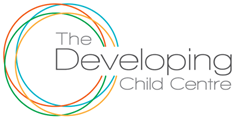
Bibi Shah | TDCC Director of Psychology Discusses Parenting Styles
Parenting. It’s a tough job. It’s also possibly one of the very few very important jobs that doesn’t come with a training manual. We either parent the way our parents did – or some variation thereof — or we follow our gut instinct. Parenting is also one of the most researched areas in psychology and for good reason: It is THE most important job we will take on as adults. And the most rewarding.
As with most things in life, balance is key to parenting. At one extreme we have the Chinese mother who is an authoritarian parent: high in control, structure and low in warmth. And at the other end we have parents who are considered permissive: low in control, little structure, where children can be allowed to do whatever they want. Authoritarian parents, warm but firm, fall somewhere in the middle and are able to balance rules and structure with warmth and support.
Good parenting helps foster empathy, honesty, self-reliance, self-control, kindness, cooperation, and success. It also promotes intellectual curiosity, motivation, and desire to achieve. It also aids as a buffer against childhood challenges such as anxiety, depression, eating disorders and anti-social behavior.
My first reaction to the Chinese mother’s authoritarian overtly strict and controlling parenting model was to recoil in horror at some of her techniques. It was only after a second and even third reading of the article that I can see some common ground with her parenting style and that of other cultures. We must remind ourselves that a successful parent is defined differently in the Chinese culture and other cultures – for example, American. Success in the Chinese culture is focused more on academic achievement combined with very high expectations, while American parents want well-rounded children with a fair amount of self-esteem. The other major area of difference between a Chinese mother and western mother is how they punish or discipline their children for a misdeed such as, for example, getting a low grade. While western parenting advocates explaining the rules and consequences, the Chinese culture uses shaming as a technique for compliance in children. While this technique seems to work in the Chinese culture, it may not work the same way in a different cultural context. Shame, as an emotion, can be harmful for most children and can be internalized and lead to anxiety or depression.
If we could take one thing from the Chinese mother and use it, it would be believing in your children and not letting them give up. Persistence on the part of the parent pays off.
In the end, every parent wants his or her children to grow up successful, happy and well-rounded. But different cultures have very different ideas about the best way to do this. So while the goals for parenting are mostly the same, the road to getting there can be very different for say American and African parents. Along the way there are challenges for all parents, regardless of their parenting model. As we learn more and more about different cultures and how they parent, it is important to try and understand each other with an open mind. And we can all learn from each other.
What’s your parenting style? | 5 tips to finding balance
Authoritarian Authoritative Permissive
- Are you consistent in your parenting style? Consistency is key to good parenting as children know what to expect for both good and bad behavior.
- Foster your relationship with your child. Regardless of your parenting style, the relationship is key. Focus on trust, warmth, love and respect between you and your child. Once this core relationship is strengthened, your parenting style may also change to better suit you and your child.
- Parenting is a two-way street. Just as your child must adapt to your parenting style, your parenting also needs to adapt to your child’s developmental needs. For example, independence in a 3 year-old needs to be fostered differently than in an adolescent.
- Avoid harsh discipline. All discipline is not the same. Any discipline using power assertion (yelling, hitting) can be detrimental to a child and ultimately does not work. It can also cause aggression in children. Try using techniques such as reward charts, taking away privileges and simply discussing the situation with your child.
- Explain your rules and decisions. Research shows that children internalize (understand more fully and incorporate into their thinking) rules are better when they are explained. So avoid the ” Do this because I said so” and try to explain things in a simple and clear language that your child can understand.









